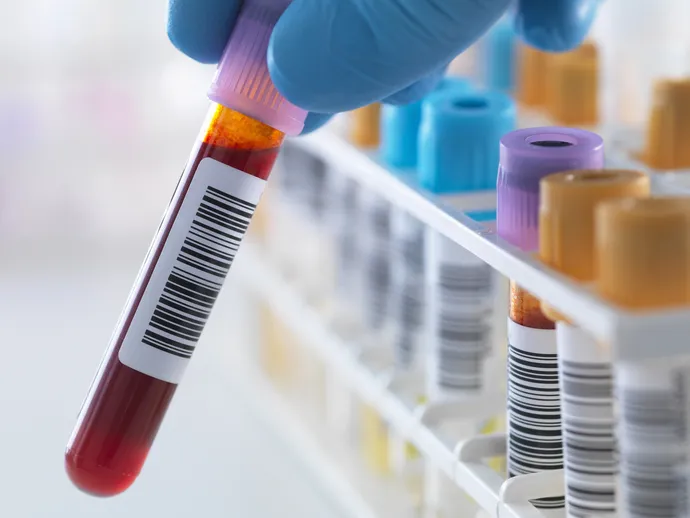Last updated on 3rd Sep 2022 - By Dwayne Michaels
Most common symptoms of Abnormal creatinine :
Serum creatinine is an important indicator of kidney health because it is an easily measured byproduct of muscle metabolism. Creatinine is removed from the blood chiefly by the kidneys. Let us find out if you need more blood tests to find out if you have any serious kidney problems.
Most common symptoms of low creatinine :
- Lack of strength
- Muscle stiffness
- Difficulty exercising
- Muscle weakness
- Muscle pain
- Thin body
- Inflamed liver
- Fatigue
- Tar colored stools
- Feeling dizzy
- Unexpected weight loss
- Frail body
- Nausea
- Decreased mobility

Receive world-class medical opinion about your low creatinine levels over email.Upload blood test report now
Most common symptoms of high creatinine :
- Nausea
- Changes in urination appearance
- Confusion
- Chest Pain
- Muscle Cramps
- Irregular heart rate
- Swelling
- Fatigue
- Tiredness
- Shortness of breath
- Passing low amounts of urine
- Itchiness
- Vomiting
- Fluid retention
- Changes in urination frequency
- High blood pressure

Each day, 1% to 2% of muscle creatine is converted to creatinine. Men tend to have higher concentrations of creatinine than women because, in general, they have a greater mass of skeletal muscle. Increased dietary intake of creatine or eating a lot of protein (like meat) can increase daily creatinine excretion.
Some examples of conditions that can increase creatinine levels include:
- Damage to or swelling of blood vessels in the kidneys.
- Bacterial infection of the kidneys (pyelonephritis)
- Death of cells in the kidneys' small tubes (acute tubular necrosis)
- Conditions that can block the flow of urine in the urinary tract, such as prostate disease or kidney stone
- Reduced blood flow to the kidney due to shock, dehydration, congestive heart failure, atherosclerosis, or complications of diabetes
If you need our help diagnosing the severity of your illness and want to fix your problem, you can upload your blood report here. Upload blood test report now
Serum creatinine is one of the most commonly used indicators of kidney function. But many patients may need other important kidney blood tests to diagnose their problem. Learn whether you need further blood tests to diagnose a serious kidney condition.
An increase in serum creatinine can be due to increased ingestion of cooked meat (which contains creatinine converted from creatine by the heat from cooking) or excessive intake of protein and creatine supplements, taken to enhance athletic performance. Intense exercise can increase creatinine by increasing muscle breakdown. Dehydration secondary to an inflammatory process with fever may cause a false increase in creatinine concentrations not related to an actual kidney injury
A rise in blood creatinine concentration is a late marker, observed only with marked damage to functioning nephrons. Therefore, this test is unsuitable for detecting early-stage kidney disease. A better estimation of kidney function is given by calculating the estimated glomerular filtration rate (eGFR). eGFR can be accurately calculated without a 24-hour urine collection using serum creatinine concentration and some or all of the following variables: sex, age, weight, and race, as suggested by the American Diabetes Association.
Many laboratories will automatically calculate eGFR when a creatinine test is requested. Males produce approximately 150 μmol to 200 μmol of creatinine per kilogram of body weight per 24 h while females produce approximately 100 mol/kg/24 h to 150 μmol/kg/24 h. In normal circumstances, all this daily creatinine production is excreted in the urine.
In the United States and in most European countries creatinine is usually reported in mg/dL, whereas in Canada, Australia,[21] and a few European countries, mol/L is the usual unit. One mg/dL of creatinine is 88.4 μmol/L
The typical human reference ranges for serum creatinine are 0.5 mg/dL to 1.0 mg/dL (about 45 μmol/L to 90 μmol/L) for women and 0.7 mg/dL to 1.2 mg/dL (60 μmol/L to 110 μmol/L) for men. The significance of a single creatinine value must be interpreted in light of the patient's muscle mass. Patients with greater muscle mass have higher creatinine concentrations.
Abnormal creatinine levels in the blood may mean that your kidneys are not working as they should. If you need our help diagnosing the severity of your illness and want to fix your problem, you can upload your blood report here. Upload blood test report now
The kidneys are a pair of bean-shaped organs that are located at the bottom of the ribcage in the right and left sides of the back. Within them are about a million tiny blood filtering units called nephrons. In each nephron, blood is continually filtered through a microscopic cluster of looping blood vessels, called glomerulus. The glomerulus allows the passage of water and small molecules but retains blood cells and larger molecules.
Serum creatinine concentrations may increase when an ACE inhibitor (ACEI) is taken for heart failure and chronic kidney disease. ACE inhibitors provide survival benefits for patients with heart failure and slow the disease progression in patients with chronic kidney disease. An increase not exceeding 30% is to be expected with ACEI use. Therefore, usage of ACEI should not be stopped unless an increase of serum creatinine exceeded 30% or hyperkalemia develops.
Results from a blood creatinine test may be used in combination with results from other tests to calculate values that are used to evaluate kidney function. Know what you can do to fix your creatinine problem.
Urine creatinine may also be used with a variety of other urine tests as a correction factor. The concentration of urine varies throughout the day, with more or less liquid being released in addition to the body's waste products. Since creatinine is produced and removed at a relatively constant rate, the amount of urine creatinine can be compared to the amount of another substance being measured.


Receive world-class medical opinion about your low creatinine levels over email.Upload blood test report now
Also Read : Creatinine treatment
Also Read : Read 10 GOLDEN ARTICLES on Kidney health
Are lab test results always right?
While they do have to meet very high standards, they can be wrong sometimes. For example, you might get a false positive (the results say you have the condition you were tested for, but you really dont) or a false negative (the results say you don’t have a condition, but you really do).
Lab test failures contribute to delayed or wrong diagnoses and unnecessary costs and care. For context, a 2014 study estimated that diagnostic errors happen about 12 million times per year in U.S. outpatients. This represents 1 in 20 adults. In case you think your blood test result doesn't make any sense, we recommend that you do the test again from HealthLabs as they perform testing using verified methods and they test blood only in the best CLIA certified labs. You won't need a doctor's referral or insurance.
Besides Lab test failures, there are many other reasons for inaccurate blood results. Know the common reasons for inaccurate blood test results?
Important note :
Please keep notes of the symptoms you are experiencing. These notes can help your doctor identify low creatinine impact on your body. Keep the notes till the time you experience symptoms of low creatinine and also keep a record of the following:
- Medications used for low creatinine.
- The duration of symptoms.
- The intensity of the headache, if any.
- Fever logs and duration of the fever.
- The date you experienced low creatinine symptoms for the first time.
- Side effects of the medicine you are experiencing, if any.
- The duration of the disease.

Does drinking water before blood test affect results?
Certain blood tests require fasting beforehand. Fasting before certain blood tests is important to help make sure that your test results are accurate. Read on to learn more about the effects of water on blood test results.
Know more
What can cause inaccurate blood test results?
Several factors can affect blood test results. Read on to know the top reasons which can lead to inaccurate blood test results.
Read more
Painful health problems of famous celebrities
Read on to know chronic illnesses of top celebrities
Know more